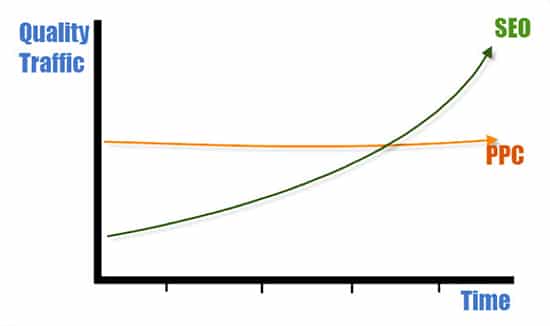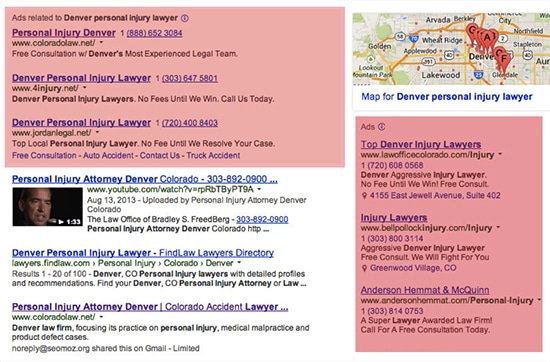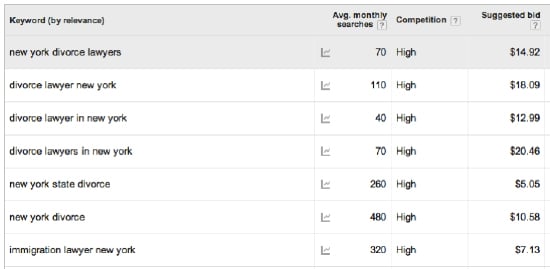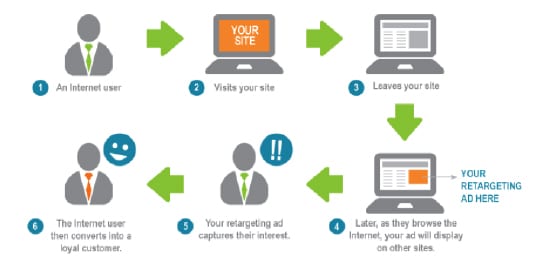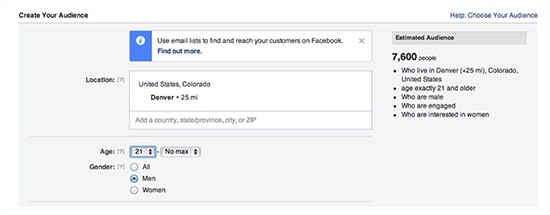Paying for website traffic is a great way to get into the world of online marketing because it can instantly bring prospective clients to your website. That can help get the phone ringing now, while you take time to develop other online marketing strategies, like search engine optimization, that will keep the phone ringing for the long haul.
Here’s a great timeline from 51blocks.com illustrating how paid advertising (in this case Pay Per Click, or PPC) can help you maintain a constant flow of traffic from day one, compared to SEO efforts — which usually don’t bring immediate traffic or show return on investment for months or years:
The challenge with paid online advertising for your website, however, is sorting out — and managing — an unlimited number of opportunities, ranging from “set and forget” options to extremely detailed bid management systems that take daily oversight. Not every option is a good choice for every attorney. You need to figure out what will work best with your budget and time.
Four Options for Paid Advertising
Here’s a rundown of the different forms of paid advertising that will give you an idea of what you’d be getting yourself into.
1. Pay Per Click (PPC)
Difficulty: Extreme.
Budget: $500 to $50,000 per month. Hard to work with less than $500 a month.
Time: Daily and weekly management.
PPC ads are the highlighted links you see at the top and sides of online search results pages. A majority of Google’s and Bing’s revenue comes from people clicking on ads like the ones highlighted in red in the figure below.
Google has done a good job of documenting the process of setting up an account, so I won’t go into that here.
Generally, most law firms set up their Google AdWords and Bing Ads accounts to pay a certain amount of money every time someone clicks on one of their ads. If you pay more than someone else is willing to, then your ad will show up higher in results. Ads can literally cost anywhere from $1 to well over $100 per click, depending on the level of competition. The figure below shows some estimated costs per click on keywords.
The quality of the ad you write and the website page it leads to determines a quality score that, combined with your cost for the keyword, will determine your ranking position on a search engine.
Confusing, right?
Also, part of Google’s PPC platform is remarketing — or giving a “cookie” to people who visit your site and then feeding them display and search ads on the different sites they visit over a certain time period. The diagram below from Econsultancy.com shows the process.
Generally, when I talk to law firms who have had bad experiences with PPC, it is because they tried to run the campaigns themselves without understanding the options or learning best management practices. They tend to do things like this:
- Create a single, low-performing ad instead of testing different ad copy.
- Send all traffic to their home page compared to a web page that is set up to capture leads.
- Fail to know the difference between broad, phrase and exact match keywords.
- Don’t separate the display and search network.
- Don’t use long-tail search terms and only focus on head terms.
The result is they waste a ton of money and come to the conclusion that PPC advertising doesn’t work. If you decide on PPC advertising, be sure you take the time to educate yourself so that you get the best ROI possible. Google has many resources, which are linked to throughout this section. Read them. If you don’t want to take the time to learn, then take time to investigate and work with a qualified professional to achieve the best results.
2. Paid Links and Posts
Difficulty: Medium.
Budget: $20 to $1,000+ per link.
Time: Set and forget.
A paid link or post is where you would pay a website to link to your site or pay for an opportunity to write a blog post on a site. I know what you’re thinking. Paid links are bad. But that’s only if you are paying for the link or post exclusively to gain search engine rankings. People buy links all the time and stay within search engine guidelines. If you go this route, just be sure to ask the site that you are paying to add (rel=”nofollow”) so that search engines know what you’ve done is a paid ad. Search engines do a fairly good job of identifying paid links themselves, but it’s a good idea to simply ask up front, “Can you nofollow this paid link?”
Here are some places where paying for links might make sense:
- Sponsorships.
- Popular sites in your community that accept guest writings.
- Online local newspapers.
- Related local business websites.
- Any site that your audience follows regularly.
These options can be fairly inexpensive and, depending on the website or publisher, the price may be negotiable. Sometimes it might only take a one-time payment; sometimes it might be a monthly fee. The sky’s the limit. Just make sure you check your Analytics Account or get a report on how many people are clicking the paid link to your website to ensure the cost is worth it.
3. Paid Directory Listings
Difficulty: Easy.
Budget: $50 to $1,000 per year per listing.
Time: Set and forget.
Sites like Avvo, Yahoo and Yelp offer enhanced profiles and better placement within their listings rankings for a fee. Some sites are strictly legal directories, like Avvo, while some are simply local directories with legal categories.
I can’t honestly say that paying for directory listings works for everyone, but some businesses are doing well with paid listings in some markets. The benefit is that, generally, the pricing is fairly reasonable compared to phonebook ads. Plus, you can get data showing how many times people went to your profile page and, in some cases, how many leads or calls came from the paid listing. They are also very low maintenance and usually easy to set up.
4. Social Advertising
Difficulty: Medium to Hard.
Budget: $20 to $1,000+.
Time: Daily and weekly management.
Social advertising is simply paying for ads on social networks. Identifying where your clients and prospects do their online social networking (Facebook, Twitter, LinkedIn, etc.) is the first step before diving in and paying for traffic from these sites. They all have very unique opportunities for advertising, though generally I think Facebook offers the best options thus far.
Facebook allows you to promote posts that can point to your website, or your fan page, and will reach a larger audience based on how much you pay. I use this often when we publish something exceptional. For example, last Monday on my personal blog, I wrote a political post and paid for Facebook ads and posts to target people in my hometown area. So far, I’ve had 4,500 page views from $300 of advertising. The benefit of social advertising is that if your content is sharable, then ads will get the initial crowd to your website. From there, they can share your stuff on their profiles and it doesn’t cost you anything more.
But my favorite thing to do on Facebook is demographic ad targeting. Let’s say I have a family law practice and want to get engaged people who live in Denver thinking about my firm for prenuptial agreements. On top of that, I want to target men only. I can create an ad on Facebook that targets the demographic I want, as shown on the right side of the screenshot below.
In Denver there are currently 7,600 men on Facebook over the age of 21 who are engaged to be married. You could target them with an ad, a story or a post that teaches them about prenups and why they might want to call you. That is powerful. In the future, when this type of data gets tied to a search engine by Google or Facebook, we are going to see some seriously hyperlocal advertising possibilities. Costs range from a few cents per click to a few dollars per click — substantially lower than search engine costs per click.
Best Advice for Online Advertising?
If you are not testing different paid advertising opportunities, you are missing out on constant traffic that, if managed correctly, could have a positive return for your law practice.
There are plenty of paid advertising opportunities to choose from. And, though it’s a new frontier for many law firms, there are great resources to help you learn the ins and outs — and many professional companies to assist if you’d rather someone else manage the process for you.
My best advice is to not put all your eggs in one basket. The more diversified your SEO and paid advertising campaigns, the better chance you will have at riding the waves of constant change in this crazy world of online marketing.
Mike Ramsey is Founder of Nifty Marketing, a local search marketing company in Burley, Idaho. Mike is passionate about helping good people and good businesses grow, and recently launched NiftyLaw as a place to learn how to handle online marketing. You can follow him on Twitter @mikeramsey or at +Mike Ramsey.
Illustration ©iStockPhoto.com




